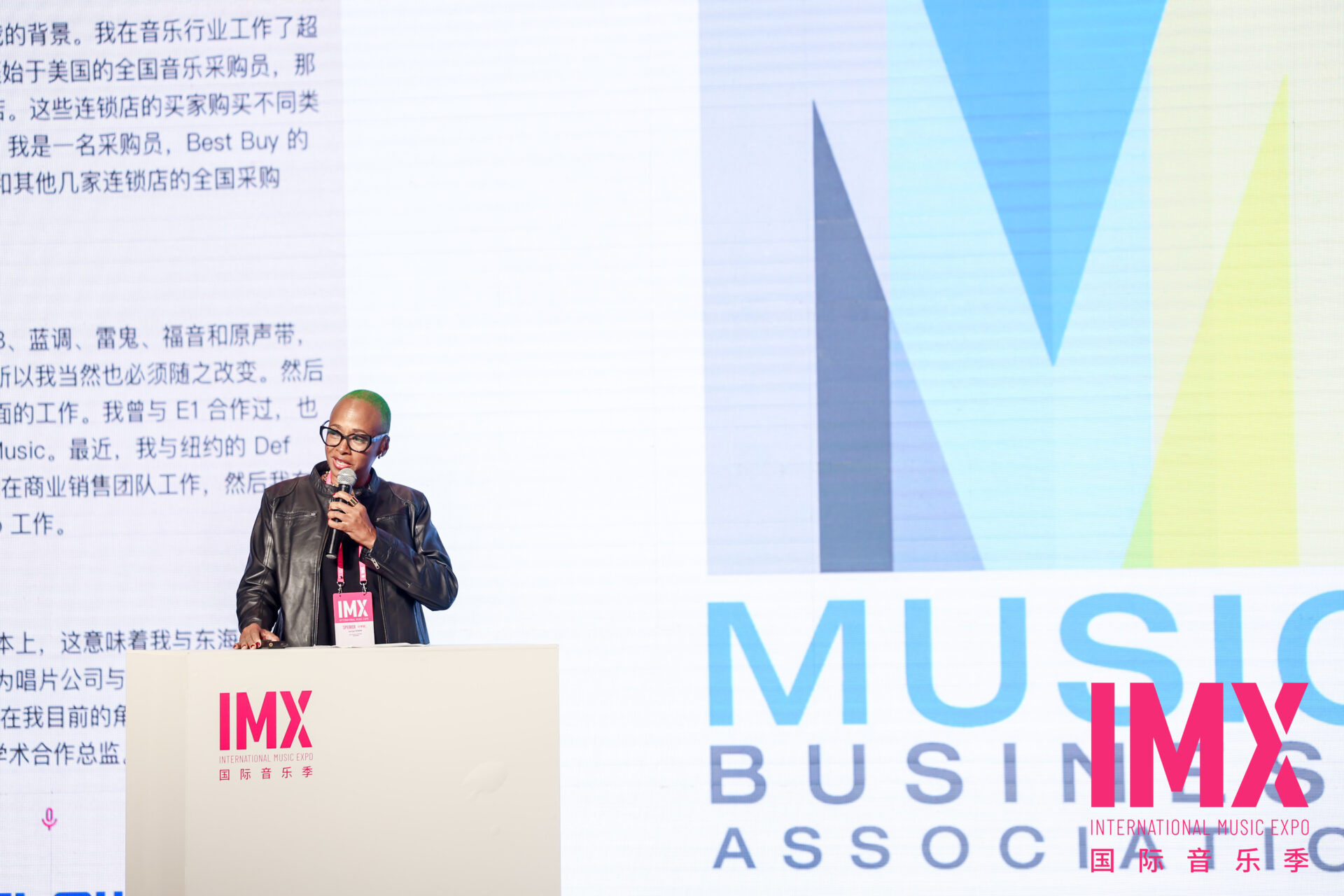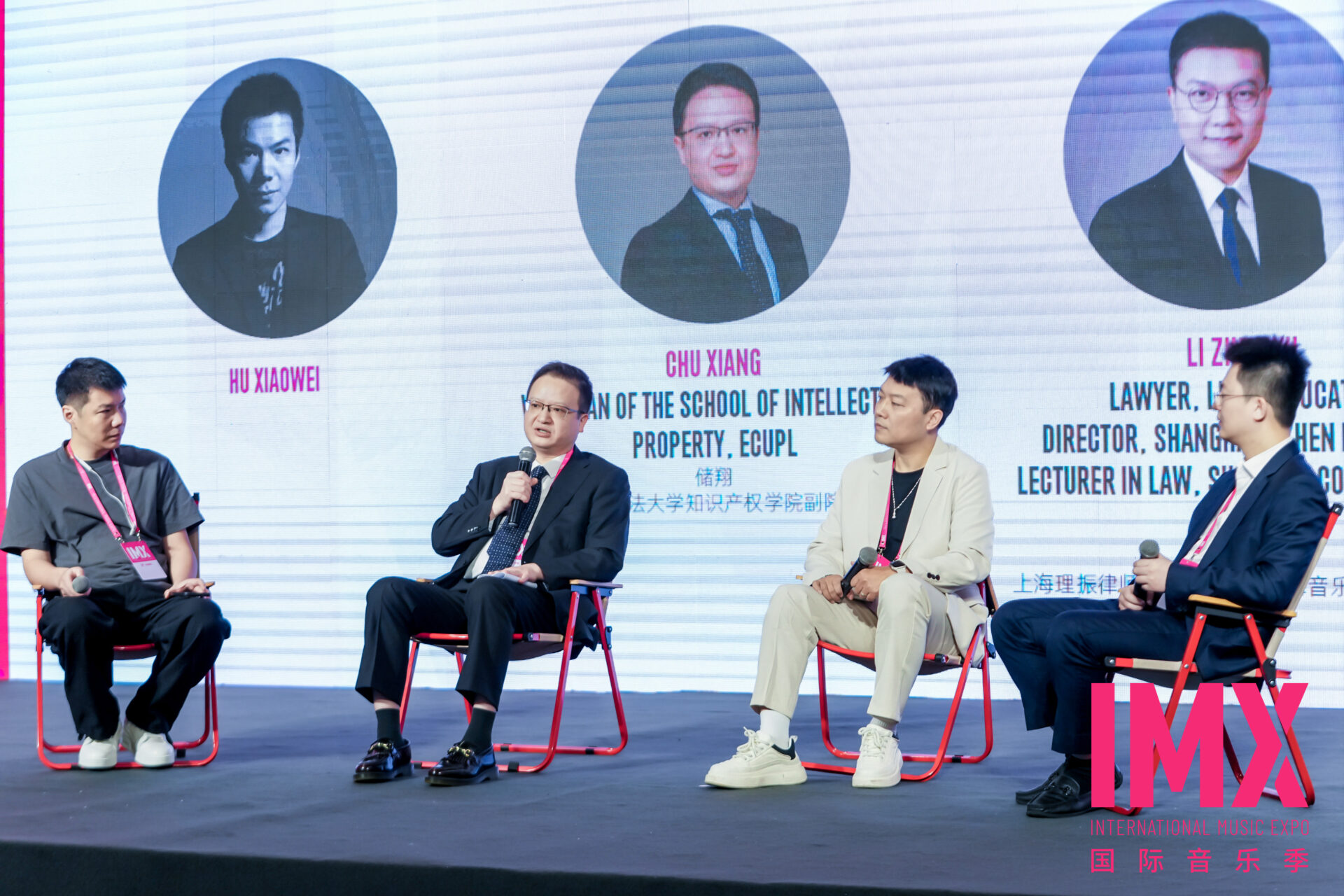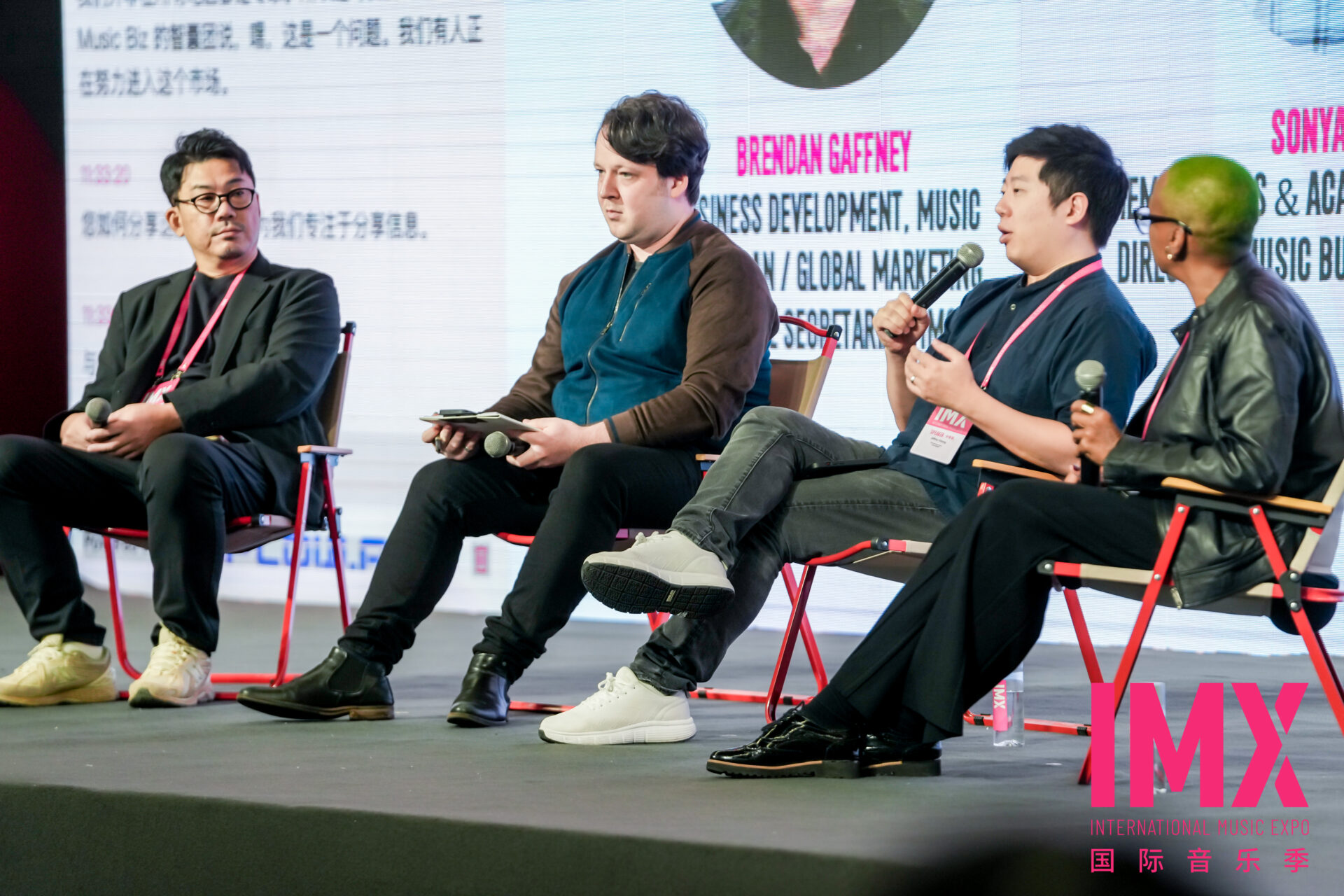IMX 2024 Day 2 Recap
Location: PUSH Art Center, Shanghai
Published on: October 25, 2024
Day 2 at IMX 2024 was a whirlwind of insights, debates, and new perspectives as industry leaders, artists, and innovators delved into the challenges and potentials shaping today’s global music landscape. From discussions on AI’s growing role in music creation to the evolving infrastructure for international artists in China, each session offered a valuable peek into music’s next frontier.
A Data-Driven Pulse Check on the U.S. Music Market
Sonia Askew from the Music Biz Association opened the day by unpacking the “State of the Music Industry in the United States,” drawing from Luminate’s latest data. Her analysis highlighted the sustained dominance of on-demand streaming, a resurgence in vinyl sales, and the booming live music sector. “Vinyl is more than a medium; it’s a culture,” she shared, underscoring the surprising resilience of physical formats in a digital world. Askew emphasized that Music Biz isn’t just about tracking sales; it’s about supporting the entire music ecosystem, including indie retailers often overshadowed by major DSPs. She pointed to Music Biz’s efforts to advocate for fair charting practices and shared insights into their mental health fund for artists—a move that resonated strongly with attendees seeking industrywide support.

AI, Ownership, and the Future of Creativity
The panel “Analyzing the Copyright Ownership of AI-Generated Music,” moderated by Hu Xiaowei, was as thought-provoking as it was intense. Legal experts Chu Xiang and Li Zhenwu joined Lei Zong of Shanghai Yientropy to tackle thorny questions about ownership, creativity, and compensation in AI-generated music. Zong championed AI as a democratizing force, “empowering emerging artists in the same way the internet did.” However, the conversation quickly shifted to concerns over fair use and the possible “chilling effect” AI could have on human creativity. The panel concluded on a call for dynamic legal frameworks, with Li suggesting that “Japan’s approach to non-consumptive use” might offer a path forward, especially as countries work to address these issues on a global scale.

Trade Associations: Catalysts for Growth in Asia
In the panel “How Trade Associations Can Support Asian Businesses to Grow,” Brendan Gaffney of Music Ally Japan led a conversation with trade representatives from Japan, Korea, and the U.S., who shared strategies for nurturing growth in Asian markets. Sonya Askew discussed Music Biz’s role in fostering trust and inclusivity, while Yushi Yamashita of IMCJ emphasized Japan’s digital transition, stressing that “educating a traditionally CD-focused market is essential.” Meanwhile, Jeffrey Chiang highlighted Korea’s complex international royalty landscape, noting the need for clearer cross-border standards. All panelists echoed the sentiment that associations play a crucial role in bridging cultural and operational divides, with Chiang concluding, “Independent voices must unite globally without losing their unique identities.”

Monetization in Motion: China’s Copyright Evolution
Copyright law, royalties, and transparency dominated the panel “Exploring the Evolution of Music Monetization Models.” Guo Kun of CAVCA highlighted China’s 2021 copyright law revisions, which introduced new rights for public performance royalties on master recordings. “This opens significant revenue streams,” he noted, especially for international rights holders navigating China’s distinctive market. Tinko Georgiev from Kanjian pinpointed data transparency as a continuing challenge, explaining that Kanjian consolidates reports across DSPs to help rights holders manage royalties more effectively. Both panelists agreed that while there is progress, deeper integration with global standards remains essential.

Strategies for Preventing Music Infringement in the Digital Era
Copyright infringement prevention took center stage in the session “Analysis of Music Infringement Cases and Preventive Measures,” led by IP experts Sooan Lee and Jiadi Liu. Lee shared Beyond Music’s proactive strategies for monitoring unauthorized usage, noting that “infringement prevention is challenging because creators can’t anticipate every use case.” Liu added that complex rights—such as those covering performance and adaptation—require separate permissions, an often-overlooked detail that leads to legal gaps. The panel concluded with a look ahead: as digital access expands, both legal protections and artist awareness must evolve to safeguard creative work.

Maximizing Royalties Through Data and Technology
Hosted by Tinko Georgiev, “Understanding Royalties: How to Maximize Your Earnings” emphasized the role of accurate data and metadata in royalty collection. Frederica Wong from Kobalt Music underscored the necessity of clean data, explaining that Kobalt’s matching systems and CMO partnerships “ensure royalties reach the right holders.” Jordi Puy of Unison focused on metadata standardization’s impact on global collections, while Taro Kumabe spoke about Japan’s challenges in registering titles in both Japanese and Romanized forms. The session highlighted the potential of AI to improve metadata management, with Kumabe noting, “AI could bridge gaps, especially in non-Latin character markets.”

The Resurgence of Physical Music Through Design
Camo Lin of HYM Originals captivated audiences with “Unlock New Potential for Physical Music Consumption by Design,” sharing his approach to reimagining vinyl as a collectible experience. Lin showcased HYM’s collaboration with Jay Chou on a visually stunning 14-album vinyl set and introduced their “Super Jump Factory” in Shenzhen, where fans can transform personal sounds into vinyl. Lin’s vision for physical music goes beyond mere consumption, aiming to create “lasting connections with artists” through uniquely designed, limited-edition releases that resonate with fans.

Global Platforms and Independent Artists: A New Dynamic
The panel “The New Supply and Demand Dynamics of Musicians, Platforms, and Markets in a Globalized World” examined the strategic thinking necessary for musicians navigating today’s digital landscape. Melissa Liang of StreetVoice argued that globalization has “redefined what it means to be an artist,” pushing musicians to master business and tech skills. Independent musician Franklin Zeng echoed this sentiment, pointing out that independence now requires a delicate balance between creativity and digital engagement. Huang Song Shun concluded with advice for musicians to adopt a multi-platform strategy, affirming that adaptability remains key in a fragmented market.

Hosting International Performances: Challenges and Rewards
The final session, “A Dialogue with a Festival Organizer on Hosting International Music Performances,” showcased the nuances of bringing foreign acts to China. Liv Zhao of 88Rising China stressed the importance of crafting a holistic festival experience, while Grant Buchwald of The Pearl highlighted his venue’s blend of Eastern and Western elements. Rick Garson pointed to the regulatory hurdles but underscored the Chinese market’s potential for artists willing to adapt. “The challenge is making artists comfortable with a different cultural landscape,” he said, noting that the rewards for connecting with Chinese audiences can be immense.

IMX Showcase: A Night of Global Sounds and Fresh Talents
As the sun set on Day 2 of IMX 2024, the IMX Showcase took center stage, transforming Shanghai into a vibrant hub of diverse music experiences. The lineup was a celebration of both local and international artistry, featuring standout performances from rising talents like Jiangyuan Wang (王江元) and Puyashan (普阿山), whose unique sounds—from Wang’s fingerstyle guitar to Puyashan’s electric folk tunes—enchanted the crowd. With acts such as LimboLimbs weaving jazz elements into contemporary beats and Lilith Yu (鱼莉莉) bringing a dreamy blend of Psychedelic Soul and R&B, the showcase became a melting pot of genres that resonated deeply with the audience.
The performances highlighted each artist’s distinct musical voice, bridging genres and cultures under IMX’s theme of “One Universe, Music Without Boundaries.” The event’s collaborative spirit underscored the creative exchange IMX champions, leaving attendees inspired by the depth and variety of today’s global music scene.


Looking Forward to Day 3
Day 2 at IMX 2024 delivered thought-provoking discussions on some of the biggest challenges and opportunities in today’s music industry. As we move into Day 3, the insights from today’s sessions highlighted how essential it is for the industry to stay adaptable, work together, and keep building a music scene that’s open, innovative, and globally connected. With new ideas and partnerships sparked, Day 3 is set to dive even deeper into the future of music.

